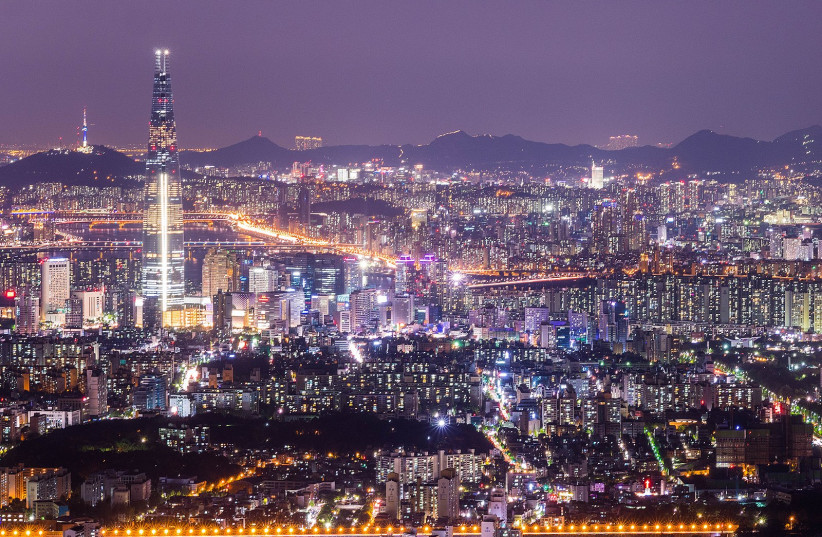The deteriorating relationship between the global superpowers, growing economic uncertainty and seismic shifts in the Middle East following the Abraham Accords are changing how states form ties and how they conduct diplomacy. In a time of global instability rife with uncertainty, countries of today’s world require new and more nimble diplomatic mechanisms to meet their increasingly integrated and instantaneous needs.
To achieve this, new minilateral partnerships are being formed. These are generally narrower, more informal and more adaptable than permanent, multilateral institutions but cover more countries than a bilateral agreement. They center on task-oriented initiatives to solve specific problems that are of common interest to the countries involved.
Seeking to expand the scope of the Abraham Accords, think tanks in the UAE and Israel have been engaging with their counterparts in other Asian countries to promote the idea of establishing new minilateral partnerships.
In a recent, first-of-its-kind workshop in Abu Dhabi, experts from the UAE, South Korea and Israel discussed ways to strengthen out-of-the-box thinking about potential synergies in a variety of fields. The focus was on how to advance cooperation between the countries, instead of aggressive competition, in similar domains of expertise, thus devising a win-win-win strategic model for the future based on complementarity.
The stage is set for a new partnership between our three nations. The UAE and South Korea elevated their engagement to the “Special Strategic Partnership” level in 2018. Meanwhile, South Korea and Israel signed a free trade agreement (FTA) in 2021, which is in the process of being ratified. Lastly, the UAE and Israel signed their Comprehensive Economic Partnership Agreement in May 2022. Since they have overlapping expertise and interests, the three countries should pool their resources, upgrade their bilateral ties to form trilateral frameworks and collaborate instead of competing. The sum of such collaboration would be much greater than its individual parts.

The agreement's potential
WITH THIS new vision in mind, a UAE-Israel-South Korea free trade agreement has true potential. Such an agreement would not only increase trade or ease existing bottlenecks in bilateral trade relations, but also open up new markets and trilateral collaboration avenues in new sectors.
For any minilateral engagement to yield results, participating countries must build cooperation around long-term economic projects that are lucrative and appeal to their respective governments and private sectors.
Several initiatives for translating such ideas into practical economic cooperation are under consideration. One is a cross-regional “Blue Economy R&D Fund” that could focus on global issues like carbon neutrality, green energy and energy security, using data, artificial intelligence and robotic solutions. Another is the prospect of nuclear energy cooperation to improve the diversity of the energy mix on which the three countries currently depend.
Other projects include tools for regional agriculture development that would augment food security, and joint research and development on space-related issues, which are crucial for achieving sustainable development goals. These initiatives can foster economic integration, and enhance political stability and cooperation in this region and beyond.
By expanding cooperation in the infrastructure, education and healthcare sectors, other Gulf, Asian and African countries could also be brought into the fold, both as providers and beneficiaries of services. Moreover, by extending the engagement into the strategic domain, Israel, South Korea and the UAE could also strengthen their positions as rising middle powers in Asia.
Today, Israel, South Korea and the UAE possess innovative technological know-how and the financial wherewithal to serve as incubators for new ideas and convert them into reality. They can strengthen these capabilities by jointly facilitating the movement of goods, services, energy, people and capital.
Yet, they also face ongoing political instability and threats in their regions. A novel UAE-Israel-South Korea strategic grouping could enhance its members’ geopolitical autonomy, especially amidst the gravitational pulls of the intensifying superpower competition.
While plenty of challenges lie ahead in translating these ideas into reality, the long-term cumulative benefits are far greater. The new trilateral initiative aims to propagate them among the three countries’ governments, policymakers and industry leaders.
Dr. Gedaliah Afterman is head of the Asia Policy Program, Abba Eban Institute for International Diplomacy at Reichman University (IDC Herzliya), Israel; Dr. Narayanappa Janardhan is senior research fellow, Anwar Gargash Diplomatic Academy, Abu Dhabi, and non-resident fellow, Arab Gulf States Institute in Washington; Mohammed Baharoon is director-general, B’huth (Dubai Public Policy Research Center); and Dr. Il Kwang Sung is senior research fellow, Sogang Euro-MENA Institute, Seoul.
